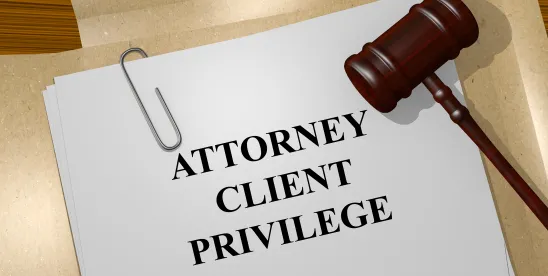Recently, in Lewis v. Crochet et al., the United States Court of Appeals for the Fifth Circuit rejected an attempt by a plaintiff to use the crime-fraud exception to the attorney-client privilege to compel two lawyers’ production of attorney-client privileged documents and information, which they obtained during the course of an investigation they conducted for Louisiana State University in 2013.
Lewis arose out of a lawsuit filed by the plaintiff, an African American woman formerly employed as an assistant athletic director for LSU, claiming that LSU and individual LSU board members discriminated and retaliated against her after she experienced and witnessed numerous instances of racist and sexist misconduct from LSU’s then-head football coach. The privilege dispute came to a head when plaintiff sought to compel LSU’s production of information from the 2013 Title IX investigation into sexual harassment allegations by LSU students against the then-head coach. Those documents remained in the possession of the law firm that conducted the investigation. Attempting to overcome LSU’s assertion of the attorney-client privilege, plaintiff invoked the crime-fraud exception arguing that LSU sought to use its lawyers to fraudulently conceal the documents in violation of Louisiana law prohibiting, among other things, the concealment of public records. The trial court agreed and ordered disclosure, but on an appeal filed by the two lawyers that conducted the 2013 investigation, the Fifth Circuit reversed.
In reaching its decision, the Fifth Circuit first determined that plaintiff had failed to make a prima facie case for the crime-fraud exception because she could not demonstrate that defendants violated the law. First, the Court found that the attorney-client communications were not public records and, as such, were not subject to disclosure under the Louisiana Public Records Act. Second, defendants had not violated the law by “concealing” the documents at-issue because they merely sought to keep them confidential, not to suppress them from public knowledge.
The Fifth Circuit also concluded that the crime-fraud exception was not applicable because the exception requires a showing that defendants intended to use the communications or work product in furtherance of ongoing or future criminal or fraudulent activity. The Court found that Appellants’ confidential treatment of the documents did not constitute an intent to fraudulently concealment public records. Furthermore, the privileged information that plaintiff sought was reasonably related only to her hostile work environment claims and not any alleged fraudulent activity, as required for the crime-fraud exception to apply.
The Fifth Circuit’s decision is noteworthy for practitioners considering how to preserve the attorney client privilege for information obtained during an investigation, and specifically investigations for public institutions subject to public record retention and disclosure laws. In particular, Lewis highlights the stringent standards that a party must meet to overcome a claim of attorney-client privilege using the crime-fraud exception. Application and waiver of the attorney-client privilege during investigations is a very hot topic, however, and employers should consult with counsel during an investigation to ensure the desired application of privilege.




 />i
/>i

